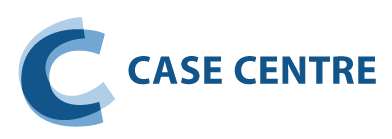


- Not connected
- |
- Login

Blazing New Trails: Responsible Generative AI and the Creative Adoption of a Large Language Model at Deloitte Canada

- English
- artificial intelligence,
- generative AI,
- large language model,
- responsible AI,
- AI adoption
This case centres on the decision-making process of Sameer Bohra, national information technology (IT) director at Deloitte Canada (Deloitte), who, in 2022, faced the challenge of integrating a generative AI large language model (LLM) into Deloitte’s operations, balancing the potential advancements in knowledge work through natural language processing with ethical, privacy, and security concerns. Due to its knowledge work and clientele, which included four out of five Fortune Global 500 companies, Deloitte required a nuanced approach to adopting this new technology. Thus, Bohra considered several integration paths, including maintaining the status quo, using an LLM safely and securely, or developing an in-house LLM. After considering all the options, he chose to implement Gen-D (generative AI at Deloitte), leveraging a third-party generative AI solution to address the challenges of using a public LLM while maintaining data security and compliance.
The case examines the strategic decision-making process, the development and implementation of Gen-D, and responsible AI principles, highlighting Gen-D’s initial success. It also discusses the convergence of technology and business strategy, underscoring LLMs’ complexities and transformative potential in a professional services context.
- Banking and financial services
After reading and analyzing the case, students will be able to do the following:
- explain the impact of generative AI, particularly large language models, on knowledge work
- understand the ethical dimensions of generative AI use, focusing on developing and implementing AI in a responsible manner
- explain the critical aspects of information security in the context of generative AI while maintaining confidentiality, integrity, and availability of data to enhance knowledge work
- discuss how to encourage user adoption of new generative AI technologies through top-down support
- apply methodologies for assessing the influence of generative AI on employees’ perceptions and behaviours
- compare and assess project management approaches (waterfall, agile, and adaptive) to deploy generative AI and explore alternative outcomes
- explain the changing role of the IT function within an organization from a service and support provider to a proactive partner contributing to strategic business goals.


